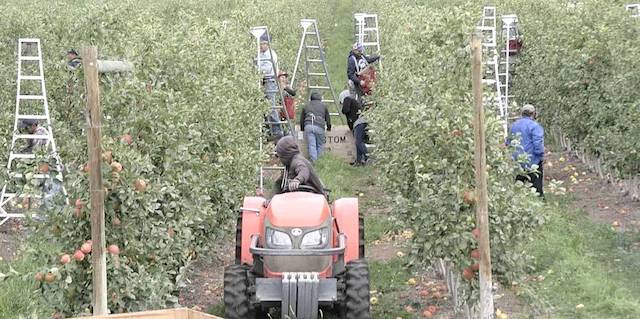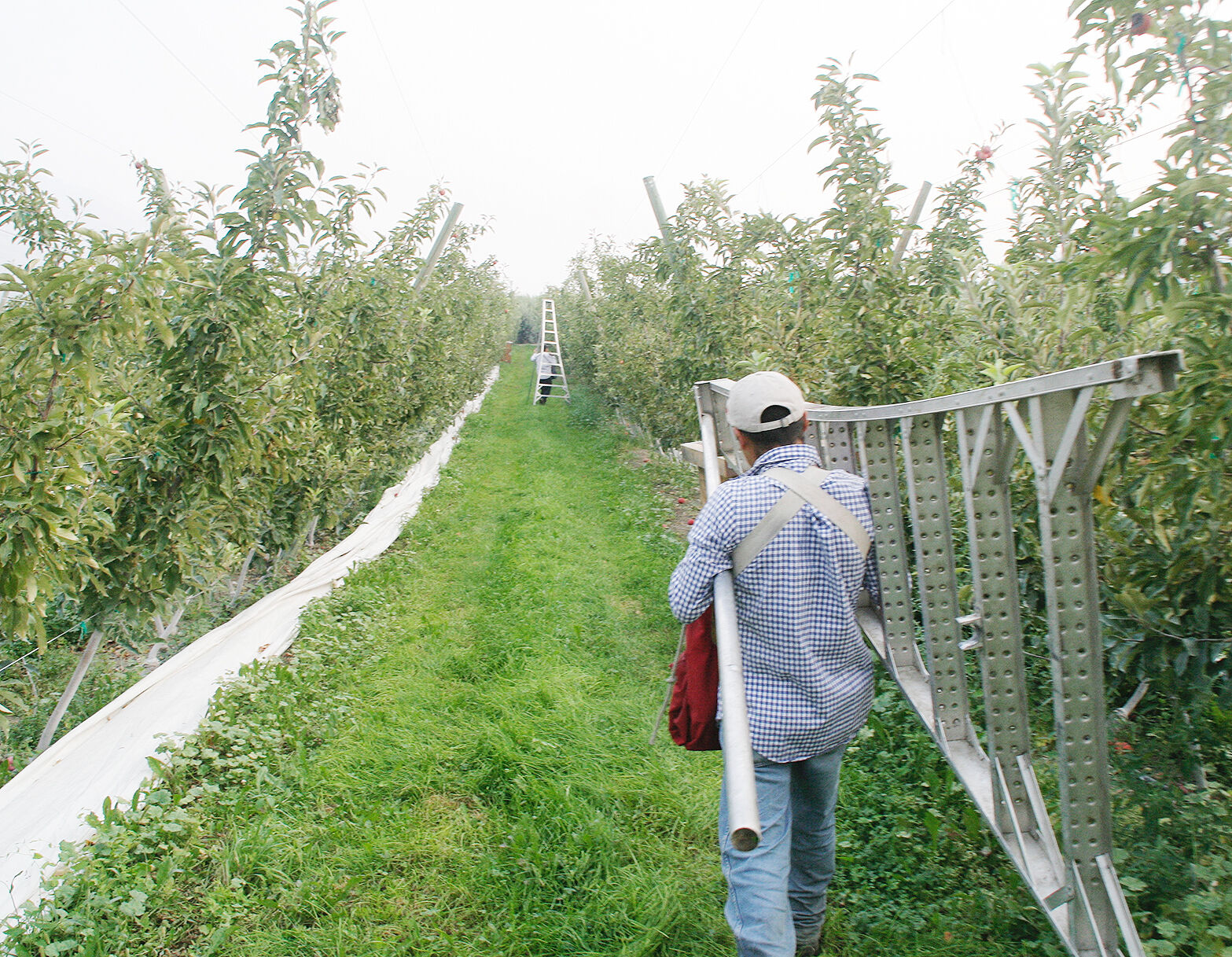Economist: Mass deportation would shrink U.S. economy
Published 1:00 pm Friday, November 22, 2024

- A farmworker on an organic farm. Farmworkers who were interviewed in a new study said OSHA had shortcomings. The agency denies it.
If President-elect Donald Trump follows through on his promise to deport millions of undocumented immigrants, it’s not likely to result in the outcome he and others expect, according to several economists who have studied the issue.
Economists have previously studied four mass deportations in U.S history, in which proponents asserted the policy would create jobs for American workers, raise their wages and grow the economy, said Robert Lynch, professor of economics at Washington College in Maryland.
The first took place in the 1930s, the second was in the 1960s, the third was from 2008 to 2014 and the fourth followed from a set of strict anti-immigration laws enacted in Arizona in 2007 and 2008.
Looking at the two most recent, the Secure Communities Program started under President George W. Bush and continued under President Barack Obama. It was from 2008 to 2014 and led to the deportation of 454,000 unauthorized immigrants.
“Studies found that the deportations actually reduced the employment of U.S-born workers and reduced their hourly wages,” Lynch said.
In the case of Arizona, the departure of 40% of the undocumented workers from 2008 through 2015 reduced the state’s economy by about 2% each year and decreased total employment by about 2.5%.
“But in each case, jobs for American workers did not materialize, their wages did not go up and the economy did not grow,” he said during a virtual news briefing hosted by America’s Voice, a group that supports immigration reform.
Shrinking economy
Several studies of potential mass deportations have estimated the U.S. economy would shrink between about 2.6% and 6.8%, Lynch said.
That’s $1 trillion to $2 trillion in economic activity per year. Government finances would suffer from a loss of at least $100 billion in tax revenue, and the rate of inflation would go up, possibly as much as an additional 3%.
There are several reasons for the negative economic effects.
One, which has been neglected in the discussion, is the demand-side effect, he said. Removing 11 million unauthorized immigrants, 8 million of whom work and earn hundreds of billions of dollars every year and spend hundreds of billions of dollars on such things as food, clothing, shelter and medical care would cause sales by American businesses to decline by hundreds of billions of dollars, he said.
“Businesses then will cut back on what they produce. They will lay off workers or lower wages or some combination of the two, and overall the economy will shrink,” he said.
Employment impact
The second reason has to do with whether unauthorized immigrants are substitutes or complements for American workers.
Proponents of mass deportation argue that unauthorized workers are close substitutes for American workers and have similar skills, education, training and willingness to work. Deporting 8 million of those workers will theoretically free up jobs for 8 million low-skilled American workers, he said.
But there are several problems with that theory, he said. As many Americans already realize, a lot of undocumented workers are doing jobs that Americans are not willing to do, Lynch said.
“If we deported over 20% of all the farmworkers in America, do you really think that an unemployed factory worker in Tennessee or a construction worker in New Hampshire is going to move to the Central Valley of California to pick fruits and vegetables or to Texas to pick cotton?” he asked.
“The research shows that in the past that has never happened,” he said.
It’s the same thing in the child care, elder care and the service and construction industries.
Willing to work
Economists have realized in the last 20 years that unauthorized immigrants — for the most part — are not close substitutes for American workers. They have different skills, different abilities and a different willingness to work, he said.
“In fact, they are often not in competition with American workers but they work cooperatively with American workers, increasing each other’s productivity, and their wages and creating more jobs and growing the economy for everyone,” he said.
The bottom line is research shows mass deportations in the past have not succeeded in growing the economy. They’ve caused the U.S. economy to contract, jobs for American workers to decline, wages to decline, he said.
“The idea that mass deportations will help American citizens in the future is likely an illusion. It has not worked in the past, and it is very unlikely to work in the future,” he said.






